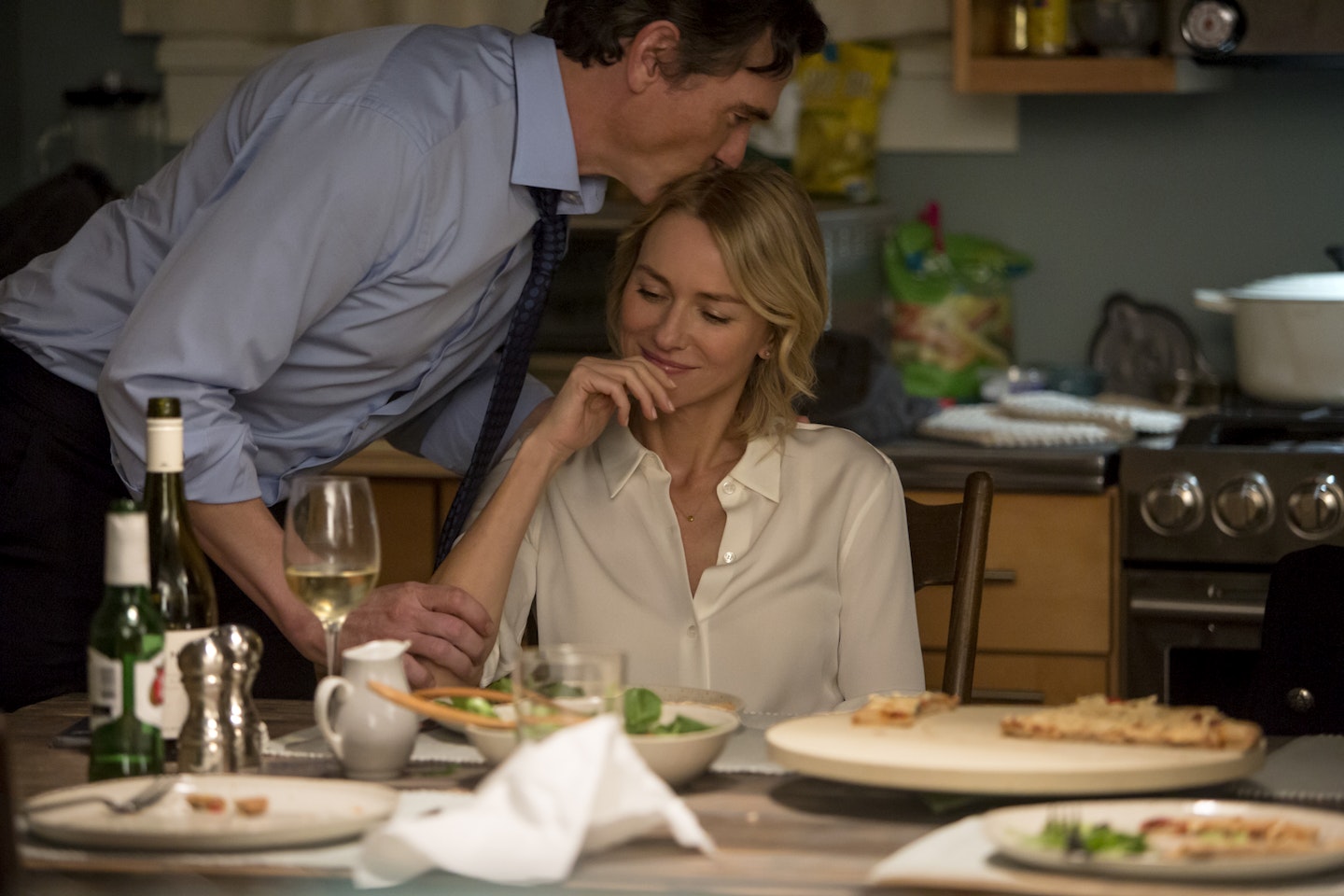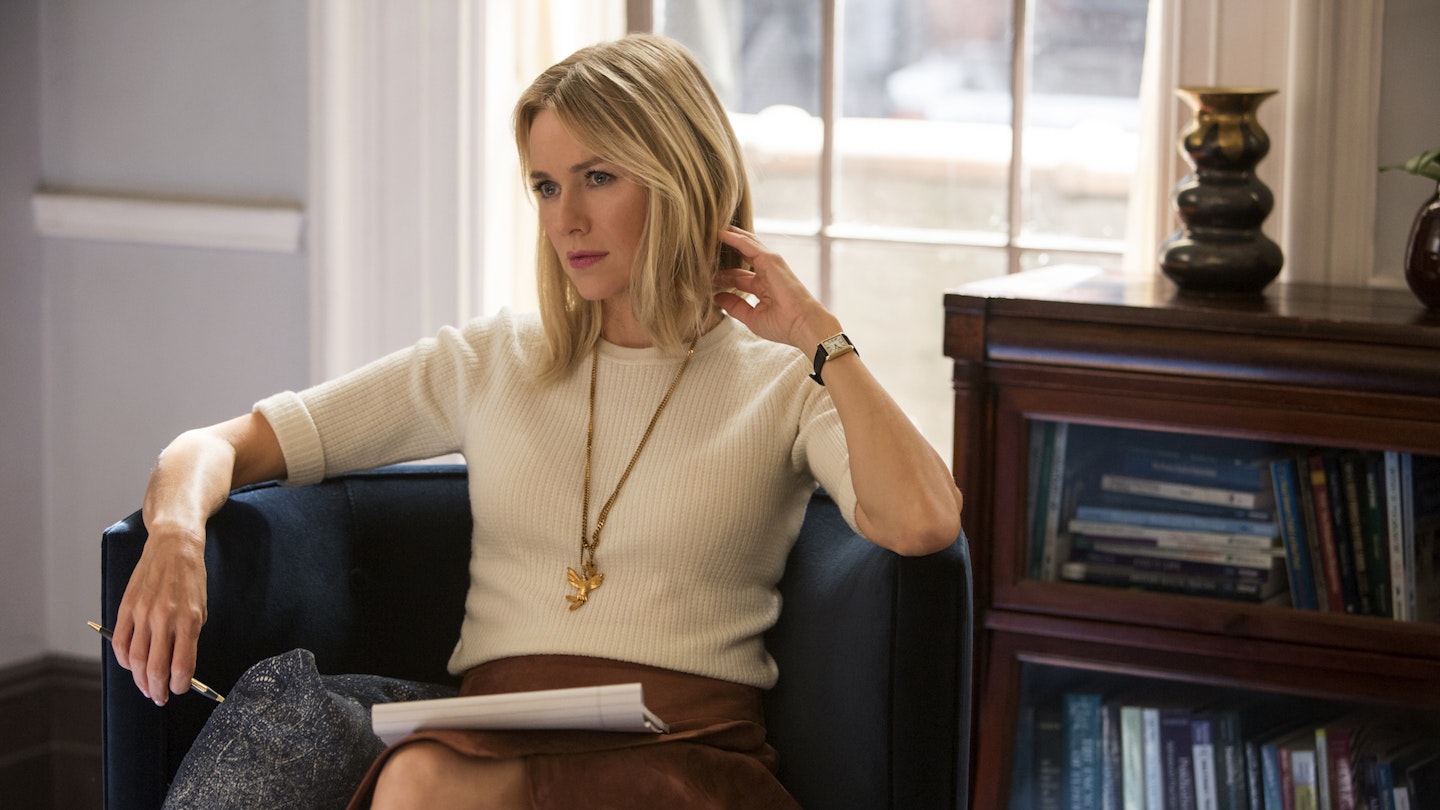Netflix’s newest drama, a sadly missed opportunity that takes juicy ingredients but dries them all out, is the story of Jean (Naomi Watts), a terrible but successful Manhattan psychiatrist. Jean has a handful of patients with whom she makes little progress, for which she blames them, but makes enough money that she can “take mornings off half the week”. At home she has a handsome lawyer husband (Billy Crudup) and a daughter who is showing clear signs of gender-nonconformity (the daughter is comfortable with this; Jean is very much not). Jean is bored.
An undiagnosed sociopath, Jean amuses herself by delving into the lives of her patients outside office hours. She finds the people they discuss and befriends them, calling herself Diane to avoid detection, then uses the knowledge she gains to manipulate everyone. In particular, she fixates on Sydney (Sophie Cookson), one patient’s generically ‘edgy’ ex-girlfriend (barista, sings in a band, knows her bourbon). Jean and Sydney begin a flirtation that becomes a mutual obsession. If any one of Jean’s lies is exposed, her whole life would crumble. If only one of them would dislodge a little quicker.
Nobody could be better cast than Naomi Watts as a woman crowding multiple personas in one head.
The bones of the show are good, with a premise that promises plenty of scandal and intrigue. Nobody could be better cast than Naomi Watts as a woman crowding multiple personas in one head. Yet it’s all too dull, a show that wants to glide mysteriously when it should race madly. The nature of Netflix’s binge model is supposed to give creatives the opportunity to let a story breathe and not worry about cheap hooks to get an audience tuning in next week. Gypsy is an example of how this can be a negative. It pinches out plot at such a lethargic rate that there’s little reason to stick with Jean as she drifts in and out of the orbit of horrible Sydney. For a show billed as a psychological thriller it is very low on thrills — twists are dropped at the end of a few episodes but left to go slack in the next — and pretty basic in its psychology.
There’s not a lot to unlock about its characters. The object of Jean’s obsession almost immediately reveals she has daddy issues. Jean clashes with her mother (Blythe Danner) who is the selfish attention hog Jean insists she doesn’t want to be but is clearly becoming. When Jean meets her husband’s extremely beautiful assistant she asks him not to have an affair with her because “you’d be making me part of a cliché”. He starts flirting almost immediately with this woman who is much younger than him and attends to him in a way his increasingly absent wife does not. It’s all day one, lesson one shrink stuff. Perhaps it’s a statement on how uncomplicated people actually are, that those clichés are clichés for a reason, but it makes for dreary, predictable narrative.

The obviousness of Gypsy’s plotting might not be an issue if the show had a different image of itself. As lurid, soapy, psychosexual trash it might work, but that doesn’t seem to be what anyone involved is trying to make. Gypsy has the clean glamour and verbose scenes of prestige drama. It rejects its own absurdity. Sam Taylor-Johnson directs the establishing episodes and gives it plenty of gloss, but none of the wink she gave to Fifty Shades Of Grey, a project with similarly daft psychology, but at least it knew it. There are flashes of the show this could have been. Jean and colleagues sitting around a table bitching about patients and discussing them as commodities is something you want to eavesdrop on more. Jean’s relationship with her daughter throws up a difficult battle between the mum who wants to support her child but also wishes she were like everyone else. Yet these are brushed past to focus on the bland affair. Beneath all the deceptions and scandals, Jean is hiding a deeper secret: she’s just not interesting.
